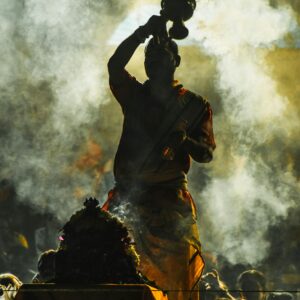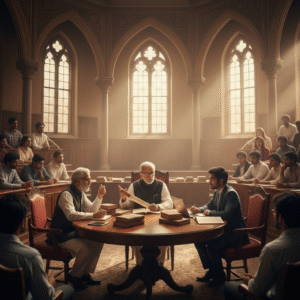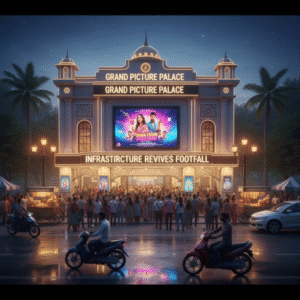In the Shadow of Convictions, Is Humanity Being Overlooked?
In a bustling market in Delhi, amidst the vibrant exchange of goods and greetings, a heated debate erupts between two vendors. The subject? Not prices or politics, but a disagreement over religious practices. Nearby, a child sits on the pavement, unnoticed, clutching an empty bowl. It’s a scene that quietly reflects a larger question plaguing not just India, but the world: Are we prioritizing belief systems over the well-being of people?
Faith vs. Humanity: A Growing Divide
India, a country celebrated for its pluralistic society, has witnessed an increasing polarization in recent years, with belief systems often taking center stage in public discourse. From debates on the legitimacy of interfaith marriages to controversies surrounding places of worship, the focus seems to be shifting from the values religions espouse—kindness, empathy, and justice—to the structures and systems that define them.
- Religious Conflicts: Reports from the National Crime Records Bureau (NCRB) reveal a rise in communal incidents over the past decade. While belief systems should ideally bridge divides, they often become a source of division, overshadowing the common humanity that binds us.
- Marginalized Communities: Social scientists argue that caste and gender inequalities, often justified by misinterpreted religious doctrines, continue to hinder progress for millions. The focus on maintaining traditional hierarchies frequently comes at the cost of individual dignity and equality.
Stories That Illuminate the Crisis
Consider the case of Nagma, a widow in Rajasthan, who faced ostracism from her village for remarrying outside her caste. “I did what I thought was best for my children,” she says. “But to the community, my choice was an affront to tradition.” Her story, documented in a recent report by theHuman Rights Law Network, highlights the tension between personal well-being and societal expectations rooted in belief systems.
Similarly, the plight of migrant workers during the COVID-19 lockdown exposed a glaring disconnect. While debates raged over reopening places of worship, thousands walked hundreds of kilometers to reach their homes. Their suffering underscored a troubling reality: in moments of crisis, ideological battles often overshadow human needs.
What Lies Beneath?
Sociologists and psychologists suggest that this prioritization of belief systems stems from a deep-seated need for identity and belonging. When people feel threatened—economically, socially, or politically—they often cling to belief systems as anchors of stability. However, this can lead to a dangerous “us vs. them” mindset, where protecting the system becomes more important than supporting individuals.
Moving Toward a People-Centered Perspective
Shifting the focus from systems to people requires collective introspection and action:
- Community Initiatives: Interfaith and intercaste initiatives that prioritize shared goals—such as education, healthcare, and disaster relief—can help bridge divides. The Sadbhavana Yatra in Gujarat, for instance, has been successful in fostering harmony through community-driven projects.
- Policy Reforms: Governments must create policies that prioritize human dignity over rigid adherence to traditional structures. Laws addressing manual scavenging and gender-based violence are steps in the right direction but require stringent enforcement.
- Educational Reforms: Encouraging critical thinking and empathy through education can nurture future generations who value people over dogmas. Programs that teach the universal ethics underlying all religions can inspire a more inclusive mindset.
Conclusion: Choosing Humanity
In the grand narrative of belief systems, it’s easy to lose sight of the people they are meant to serve. Yet, as Nagma’s story reminds us, the heart of any faith or philosophy is not in its rituals or rules, but in its ability to uplift lives.
India’s diversity is its greatest strength, but it will only remain so if the focus shifts from safeguarding belief systems to fostering empathy, equality, and care for all. The real question is: Are we ready to redefine what truly matters?
As Mahatma Gandhi once said, “The best way to find yourself is to lose yourself in the service of others.” Perhaps it’s time we revisit those words—not as a belief, but as a call to action.









